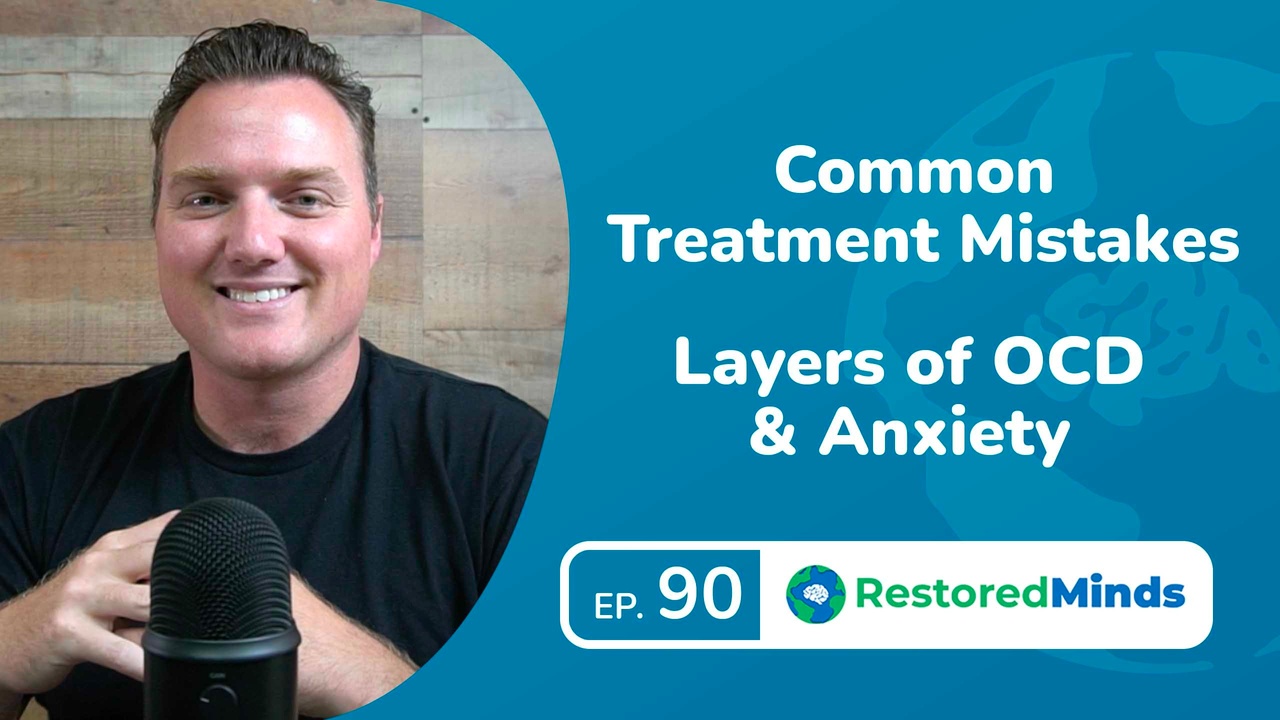Common Treatment Mistakes - Layers of OCD & Anxiety
Apr 30, 2021
Common Treatment Mistakes: Layers of OCD & Anxiety
Understanding the Complexities of OCD and Anxiety Recovery
What Are the Layers of Anxiety?
When dealing with OCD and anxiety, it's essential to comprehend what we refer to as the "layers of anxiety." The primary issue is the relentless barrage of "what if" thoughts. This kind of thinking is the hallmark of anxiety disorders.
Matt explains:
"It's our brain anticipating bad things in the future, causing us to experience stress in the present."
In the context of OCD and anxiety, this anticipatory anxiety extends across phobias, social anxiety, generalized anxiety, PTSD, and panic attacks. While PTSD involves recurring distressing images, it too can stem from "what if" thoughts.
The Triple A Response Framework
At Restored Minds, we teach the Triple A response framework. This is our signature method that helps individuals manage and mitigate repetitive "what if" thoughts. Consistency in applying these tools is critical for success.
Matt shares:
"Let's say someone has a religious fear or existential anxiety involving thoughts like, 'What if I committed an unforgivable sin?' If they successfully use the Triple A response on the first thought, but then second and third layers of anxiety come up, they must be prepared."
Conquering the Second and Third Layers
The real challenge lies not just in addressing the initial "what if" thought but also in tackling the subsequent layers. If you engage with these additional layers, anxiety can spiral out of control.
Matt warns:
"If you give in to the second and third layers, you may find yourself spiraling into worry and obsession. The anxious mind won't stop at the first what if. It's prepared to try different angles, urging you to react."
Real-Life Scenarios
Consider anxieties surrounding relationships. Initial thoughts might revolve around fears of infidelity or falling out of love. Utilizing the correct strategies can mitigate these fears initially, but secondary thoughts could include:
-
"You're not being a good partner for not addressing this."
-
"You're irresponsible if you don't find an answer."
Understanding and countering these second and third layer thoughts using the Triple A response is essential.
Key Takeaways
-
Recognize the layers
- Be aware of the primary, secondary, and tertiary layers of anxiety.
-
Use the Triple A response consistently
- Apply this framework at every layer to counteract the anxious thoughts effectively.
-
Understand mental compulsions
- Prevent engaging in mental behaviors that perpetuate the cycle of anxiety.
Matt advises:
"Your consistency and persistence in using the tools through every layer are crucial. Anxiety will keep throwing different 'what ifs' at you, and you need to be ready."
Conclusion
Mastering the layers of anxiety and consistently applying the right tools can significantly enhance your recovery journey. Remember, persistence and understanding are key.


